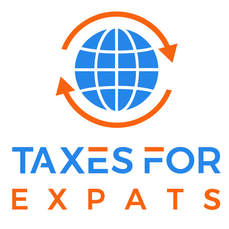|
One of the most frequent questions we receive from American expats is what to do about taxes when you become an expat. When it comes to U.S. taxes, the answer is never simple! Today, we have a guest post by Inez Zemelman, EA, the founder of Taxes for Expats, a firm specializing in tax preparation for U.S. taxpayers who are living overseas. Taxes for US citizens residing abroad is always a tricky subject. The following information is provided by Taxes For Expats -- They are a professional tax firm that work directly with expats in Mexico and taxpayers across the globe (they have clients in 175 countries) and they often get asked to break down the clunky IRS tax code & explain filing requirements for Americans who live outside the U.S. For more in depth info, please see their U.S. Tax Guide for 2017 for complete info. (Note: Taxes for Expats is not affiliated with Expat Fever and has not paid a fee in order to be posted here.) The Basics:
If you are self employed or have a job, you likely need to file a U.S tax return. If you are a US citizens or Green Card holder, you must (assuming you meet the minimum filing thresholds) file an annual tax return reporting your worldwide income from all sources. The minimum requirements are $4k USD for those who are married filing separately (generally those married to a non-US citizen), and $400 for those who are self employed. If you are single the threshold is $10k USD. You must file - but you likely won’t pay (if your return is prepared correctly). There is a general misconception that you do not need to file if you earn under $100k. This is incorrect. You must file, but if you take advantage of the proper exclusions, most expats won’t end up paying any taxes to the IRS. To take advantage of these exclusions, you need to file; they are not automatically granted. Each year, you must continue to file if you meet the minimum filing requirements. Failure to do so can lead to penalties. How do expat returns differ from a tax return when you live in the states? Deadlines: For those residing abroad, tax due is June 15 (automatic two month extension is granted). Note - if you owe any tax, it is still due on April 15th, so get your returns done early in the year to avoid any unpleasant surprises. An additional extension until October is also available - this must be filed before June 15 Many deductions/exclusions available only to those residing abroad: The tax man giveth, but Uncle Sam does not give automatically. In order to benefit from the tax saving methods available - the Foreign Earned Income Exclusion (FEIE), Foreign Tax Credit, Foreign Housing Exclusion, Treaty exclusions, and many more - your tax return must be prepared correctly and tax saving tools utilized properly. No W-2 (country equivalent) sent to the IRS: Unlike a U.S. employer which will issue a W-2 or 1099, which will be sent to the IRS and to you, your foreign employer will not provide you with such a form (and even if there is a local tax declaration, it does not get forwarded to the IRS). As such, you should keep accurate records of your finances. The U.S. calendar year remains Jan 1- Dec 31, and your local tax declaration may be on a different fiscal year (ie; Apr 1 - Mar 31); we have a special income calculator in our questionnaire that helps normalize your earnings to the U.S. calendar year. Overall complexity: Living abroad has many benefits, but increased complexity of your U.S. tax return is not one of them. Chances are you have non-US pension, you may be self-employed or own a non-US corporation, or invest in non-US mutual funds - dubbed PFIC (foreign passive investment corporations). Finally, you likely contribute to a non-us social security system, and you need to read up on what totalization agreements are, along with calculating how to treat your employer contributions to your superannuation account and understanding the various tax treaties- it’s no fun; let us make this annoying process less painful. Reporting your financial accounts - does not generate tax due: Aside from the filing of your returns, you also need to declare your non-US financial accounts (such as bank accounts, superannuation and any other non-US pension) to the U.S. treasury. Note - this does not cause you to owe tax - but you must report these balances. This reporting consists of two main forms --- FBAR (FinCEN 114) and FATCA (form 8938). These two forms are similar, but have different filing thresholds (10k USD for FBAR - 8938 depends on your filing status and where you reside (see link above). 8938 is filed with your tax return, FBAR is filed separately. Ines Zemelman, EA is the founder of www.taxesforexpats.com. The Bisbee Black and Blue Marlin Tournament begins on October 24, 2017 in Baja California, and is open to all! What better way to get away from the cold and enjoy fabulous fishing in the pristine blue waters of Baja California.
To register, go to the official website for the tournament. Bisbee Tournament Dates: 10/25/2017 - 10/27/2017
If you attend this event, send us your stories and photos, we would love to share them with our readers! |
No website or company has paid a fee to be mentioned in this blog. Any suggestions you see are based solely on our own experiences and personal preferences.
About UsJust a middle-class family with three young kids, looking to escape the rat race. This is our journey! If you have a question for us, please contact us directly using our email here.
Archives
May 2024
|



 RSS Feed
RSS Feed
